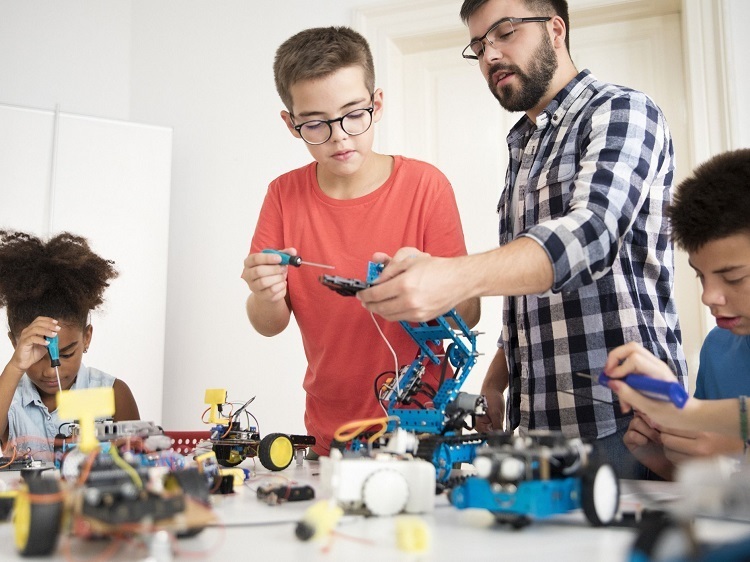- Mindfulness practices in classrooms promote resilience, improved academic performance, and personal growth among students.
- A growth mindset, cultivated through trauma-informed support and social and emotional learning programs, nurtures resilience and continuous improvement.
- Coping strategies provide practical tools for students to manage stress and adapt to adversity.
- Self-care practices are crucial in managing stress and fostering a sense of self-worth, key components of resilience.
- Regular reflection and self-reflection promote self-awareness, personal growth, and resilience.
Discover the transformative power of mindful learning in building resilience among students. This approach equips learners to handle stress and adversity, fostering a growth mindset vital in today’s fast-paced educational landscape. Tap into the potential of mindfulness and watch as it cultivates resilience, promoting an environment of patience, understanding, and adaptive learning.
Table of Contents
Incorporate mindfulness practices.
Incorporating mindfulness practices into the classroom can significantly enhance the learning environment and promote student resilience. These practices, which include focused breathing exercises, guided meditations, and mindful observation, create a sense of calm and focus, enabling students to better manage stress and anxiety.
Moreover, mindfulness fosters a deeper understanding of one’s emotions and thoughts, bolstering resilience by helping students navigate challenges with increased self-awareness and emotional intelligence. This, in turn, leads to improved academic performance and personal growth, as students become more adept at managing their mental and emotional states.
With consistent mindfulness practice, students develop the capacity to approach stressful situations calmly, adapt to change easily, and cultivate a growth mindset fundamental to lifelong learning and success.
Cultivate a growth mindset.
A growth mindset is a powerful tool pivotal to student resilience and success. This section will delve into strategies educators can implement to cultivate this mindset, setting the stage for a learning environment that breeds resilience, self-belief, and continuous improvement.
Provide trauma-informed support.
Trauma-informed support in the educational setting is an approach that recognizes the widespread impact of trauma and understands the potential paths for recovery. It acknowledges the signs and symptoms of trauma in students, families, staff, and others involved with the system.
By integrating knowledge about trauma into policies, procedures, and practices, it actively seeks to resist re-traumatization. This transformative approach shifts the paradigm from “What’s wrong with you?” to “What happened to you?” It fosters a safe, supportive, and nurturing environment that empowers students, building their resilience and equipping them with the skills to overcome adversities.
Moreover, by addressing the root causes of behavior and learning difficulties, trauma-informed support paves the way for improved academic performance and overall wellbeing, making it a crucial component of resilient and mindful learning.
Foster effective social and emotional learning programs.
Effective social and emotional learning programs play a crucial role in nurturing resilience in students. These comprehensive programs empower students with essential skills to effectively navigate their emotions, set and accomplish meaningful goals, demonstrate empathy towards others, cultivate and sustain positive relationships, and exercise responsible decision-making.
When effectively implemented, SEL programs can foster an environment where students learn to understand and manage their emotions, leading to enhanced self-awareness and improved interpersonal relationships, key factors in building resilience.
Furthermore, these programs encourage a growth mindset, fostering a culture of resilience where students view challenges as opportunities for learning rather than obstacles. By promoting social and emotional competencies, SEL programs enhance academic performance and equip students with the essential life skills needed to navigate the complexities of the modern world with resilience and confidence.
Teach coping strategies.
Imparting coping strategies is vital in enhancing resilience among students. These strategies offer students practical tools to manage stress, build emotional intelligence, and foster adaptive responses to adversity. Techniques may include mindfulness practices, relaxation exercises, and cognitive restructuring methods that help students reframe negative thoughts into positive ones.
By teaching coping strategies, educators empower students to manage their stress levels, control their emotional responses, and navigate challenging situations with resilience. This boosts their academic performance by promoting better focus and concentration and nurtures their overall mental well-being.
Furthermore, learning these strategies early on equips students with the skills to face future challenges, fostering a resilient disposition far beyond the classroom. Indeed, effective coping strategies are an integral part of a “resilience toolkit,” contributing to cultivating a growth mindset and promoting lifelong resilience.
Promote self-care practices.
Promoting self-care practices among students is a vital aspect of cultivating resilience. These practices, encompassing physical, emotional, and mental well-being, help students develop healthier relationships with themselves and their environment. Encouraging regular exercise, balanced nutrition, adequate sleep, and recreational activities can enhance students’ physical health and energy levels.
Meanwhile, emotional well-being can be nurtured through journaling, therapy, and open conversations about feelings. Mental well-being can be strengthened by fostering positive thinking, meditation, and mindfulness. These self-care practices help students manage stress and foster a sense of self-worth and self-efficacy, integral aspects of resilience.
By incorporating self-care into daily routines, students can better understand their needs and boundaries, enabling them to respond to challenges with greater resilience and adaptability. In the long run, these practices equip students with the skills to navigate life’s ups and downs healthily and productively.
Encourage reflection and self-reflection.
Reflection and self-reflection are crucial in building resilience among students. These practices encourage students to contemplate their experiences, thoughts, and emotions, fostering self-awareness and personal growth. Reflection helps students understand how they approach challenges, identify patterns in their thought processes, and analyze their responses to adversity.
Self-reflection, on the other hand, promotes introspection, enabling students to recognize their strengths, acknowledge their areas for improvement, and understand their emotional responses. Students reflect regularly and self-reflect and develop a deeper understanding of themselves and their learning process.
This empowers them to adapt their approach to learning and problem-solving, fostering resilience and a growth mindset. Reflection and self-reflection promote academic success and nurture emotional intelligence, equipping students with the tools to navigate life’s challenges with resilience and tenacity.
In closing, your role as an educator is key in fostering resilient learners. By integrating mindful practices, adopting a trauma-informed approach, implementing effective SEL programs, teaching coping strategies, promoting self-care, and encouraging reflection, you equip your students with the necessary tools to thrive. Make the leap today, and empower your students to navigate life’s challenges with resilience and tenacity.









